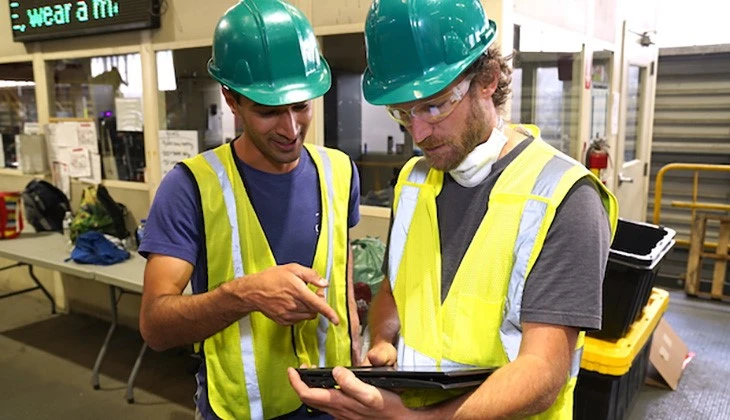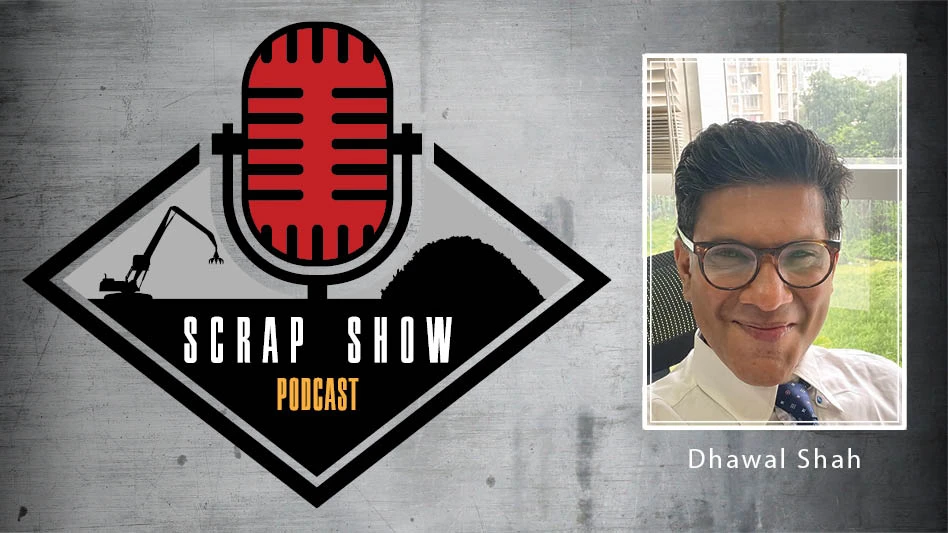
Photo courtesy of Glacier
San Fransico-based Glacier, a manufacturer of AI-powered robotic waste technology, announced it has raised $4.5M in seed funding. The round was led by New Enterprise Associates (NEA), with participation by leaders in industry, sustainability and technology, including former General Electric CEO Jeff Immelt, climate investor and former climate policymaker Sierra Peterson and former Uber Chief Procurement Officer Manik Gupta.
Glacier says its recycling robot, a combination of AI and robotics that sorts more than 30 different item types. The goal is to help the $116B US recycling industry address surging demand for recycled feedstock, as well as overcome major feedstock supply shortages caused by aging infrastructure and a dwindling labor pool.
"When people think about fighting climate change, recycling is usually not the first thing that comes to mind,” says Glacier co-founder Areeb Malik. “But recycling is actually one of the only climate solutions that can deliver significant impact immediately, because all the necessary infrastructure either already exists or is emerging now, like our technology,"
Recycling dramatically reduces carbon emissions by decreasing energy use in manufacturing, which is still primarily powered by fossil fuels. For example, recycling aluminum saves 95 percent of the energy needed for manufacturing, recycling steel saves 70 percent of energy needed and so on.
Glacier says half of recyclables in the US end up in landfill. This is in part because recycling facilities rely heavily on human sorting, and hiring difficulties have caused persistent, large-scale labor shortages. Many facilities are in full-blown crisis mode, under-staffed by as much as 50 percent with no end in sight.
Glacier says it is offering the first-ever affordable, high-performing sortation robot. Thanks to proprietary innovations, its robot costs up to 60 percent less than other robots, while matching or exceeding their performance. Glacier's robot is also less than half the size of its peers, requiring minimal facility retrofits to install. Many recycling robots have a payback period of up to 10 years across hardware and retrofit costs. In contrast, Glacier's robot can payback in as little as one year.
"Almost every facility is interested in robotic sorters, but they've assumed robots are out of reach because of high cost and inconsistent ROI,” says co-founder Rebecca Hu. "We've been overwhelmed by all the customer enthusiasm for our product."
In early April, the company installed its first commercial robot at a large recycling facility in California. The robot is sorting eight target materials across two conveyor belts simultaneously. More installations are under contract, and the company is planning to scale rapidly to meet soaring demand.
Beyond robotics, the company says it is leveraging its computer vision to power real-time waste intelligence, providing facilities and municipalities with in-depth insights into their waste stream composition and identifying new opportunities for improved staffing and technology across the industry.
"Solving the recycling industry's acute labor shortages with intelligent robotics and AI is a massive commercial opportunity but also an important step toward significantly reducing emissions and waste," says Ann Bordetsky, partner at NEA. "We're proud to back Glacier's experienced and passionate team as they introduce automation and data intelligence to an essential industry that we all rely on every day."
Latest from Recycling Today
- Nucor could be part of Cliffs’ next US Steel bid, say reports
- Recycled steel values rise in US
- RecycLiCo eyes research rather than new projects
- Yolo County Central Landfill celebrates mattress recycling milestone
- University researchers create ‘low-cost’ plastic recycling method
- Biden administration delays enforcement of order blocking Nippon Steel, US Steel transaction
- Singapore researchers develop flame retardant removal process
- Getting mixed results





